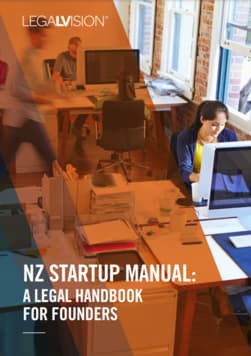Equity distribution is an important component of launching a startup, as it influences several factors that impact your business. This may include ownership and decision-making powers, both of which are critical for the startup’s success. However, navigating equity distribution requires careful planning. This article will take you through five factors you should consider when distributing equity for your New Zealand startup.
1. Founders’ Allocation
The first factor to consider is how founders should allocate equity. Equity amongst startup founders must reflect each founder’s contribution (and intended contribution) to the business, including financial and intellectual contributions. You must have transparent discussions in the early stages to establish a fair allocation that considers each founder’s current role and responsible and expected future contributions to your startup.
2. Vesting Schedules
Having vesting schedules is one way to minimise any risk associated with founder departures. Vesting schedules usually involve a gradual accrual of ownership rights over a specific period of time. This is a great way to encourage founders to remain committed to the business. It also ensures ongoing commitment to the company’s goals.
However, you must think about how to balance rewarding founders’ contributions and safeguarding the company’s interests when designing a vesting schedule.
It is highly recommended that you seek advice from a legal professional who can draft an equitable vesting agreement that protects the business’ long-term interests.
Continue reading this article below the form3. Equity Incentives
One way to attract and retain talent is by offering equity incentives to your employees. Your startup may want to consider implementing an employee share option plan (ESOP) or other equity-based compensation scheme that will help incentivise loyalty. Via these schemes, your employees can achieve the sense that they have “skin in the game”.
When implementing any ESOP or similar securities incentive arrangement, you will need to ensure compliance with New Zealand’s stringent securities law regime. Obtaining legal advice is a key way to ensure compliance and mitigate potential risks.
4. Investors
Seeking external funding from investors such as venture capitalists is one way to advance your startup’s growth. However, it often means diluting your ownership. As such, you must carefully consider any investment offers and what its terms mean for your ownership and control over your startup in the long-term.
For example, before accepting investment, founders should negotiate the terms of the agreement. Specifically, this includes terms relating to:
- equity dilution;
- valuation;
- voting rights; and
- exit procedures.
Again, it is important to obtain legal advice to ensure you completely grasp the implications of investment agreements. You must also consider whether prospective investors align with your startup’s goals and objectives.
5. Exit Strategies
Planning for exit scenarios is another major consideration when thinking about equity distribution. Exit scenarios include acquisitions and initial public offerings (IPOs). As the founder of your startup, you must consider how equity will be distributed in the event of such an exit. This requires you to develop agreements outlining buyout provisions and how you will value the business.
Again, these exit strategies must align with your long-term goals for your startup. A legal professional can assist you with developing a comprehensive exit plan and negotiating terms that protect your interests as a founder.

Essential reading for anyone building their startup. This free guide includes practical advice and seven real-life case studies.
Key Takeaways
Equity distribution is a critical part of launching a startup. After all, it determines who makes decisions for your business, contributing to your startup’s success. Some key considerations to have regarding startup equity distribution include the following:
- founders’ allocation;
- vesting schedules;
- equity incentives;
- investors; and
- exit strategies.
If you need assistance navigating equity distribution for your New Zealand startup, you can contact our experienced startup lawyers to assist as part of our LegalVision membership. You will have unlimited access to lawyers who can answer your questions and draft and review your documents for a low monthly fee. Call us today at 0800 005 570 or visit our membership page.
We appreciate your feedback – your submission has been successfully received.












